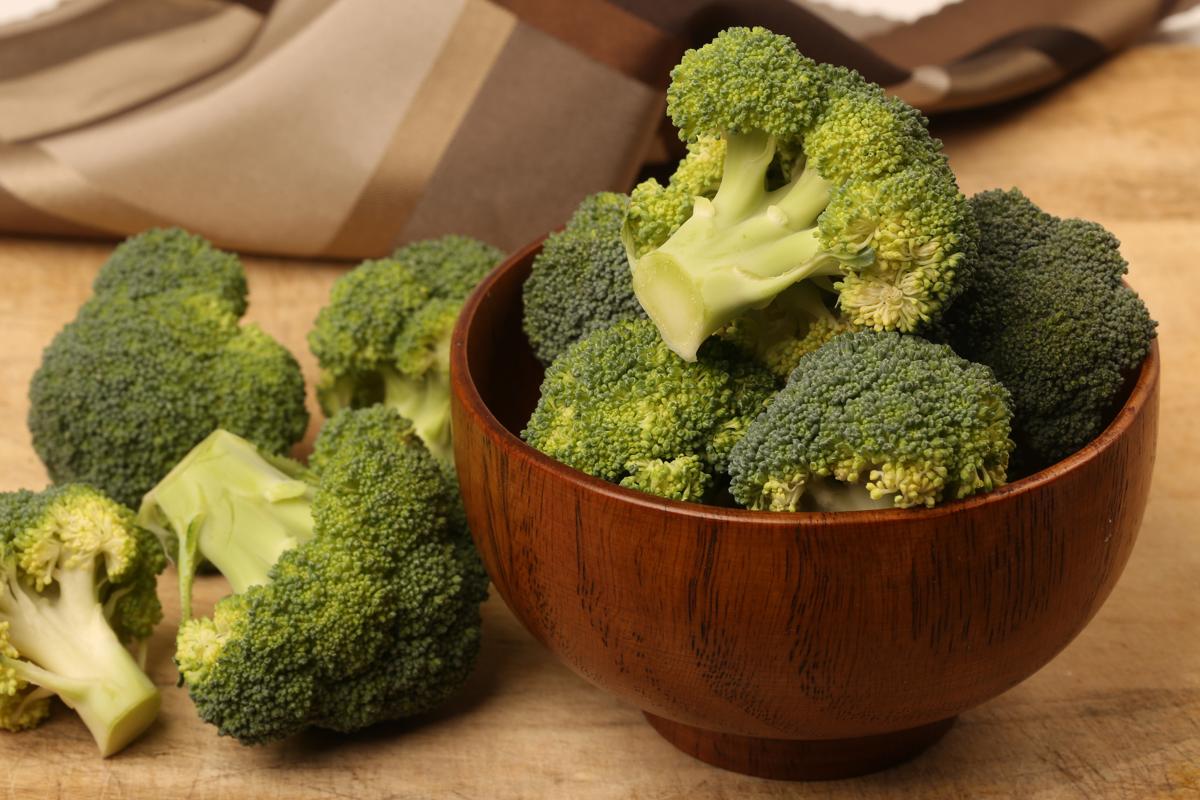
Broccoli is a cruciferous vegetable, which is highly nutritious. The following article provides information on its health benefits and nutritional value.
Broccoli (Brassica oleracea italica) belongs to the family of cruciferous vegetables. It is shaped like the cauliflower. Its large, green flower head is used as a vegetable. It was first commercially grown and harvested in California. Evolved from a wild cabbage plant, this vegetable is widely recognized for its properties.
Nutritional Information
| Nutrients | Amount* |
| Total Fat | 0 g (1%) |
| Cholesterol | 0 mg (0%) |
| Sodium | 30 mg (1%) |
| Total carbohydrate | 6 g (2%) |
| Dietary fiber | 2 g (9%) |
| Sugars | 2 mg |
| Protein | 3 g |
| Vitamin A | 567 IU (11%) |
| Vitamin C | 81.2 mg (135%) |
| Vitamin E | 0.7 mg (4%) |
| Vitamin K | 92.5 mg (116%) |
| Vitamin B1 (Thiamin) | 0.1 mg (4%) |
| Vitamin B2 (Riboflavin) | 0.1 mg (6%) |
| Vitamin B3 (Niacin) | 0.6 mg (3%) |
| Vitamin B6 (Pyridoxine) | 0.2 mg (8%) |
| Vitamin B9 (Folate) | 57.3 mcg (14%) |
| Pantothenic Acid | 0.5 mg (5%) |
| Calcium | 42.8 mg (4%) |
| Iron | 0.7 mg (4%) |
| Magnesium | 19.1 mg (5%) |
| Phosphorous | 60.1 mg (6%) |
| Zinc | 0.4 mg (2%) |
| Copper | 0.0 mg (2%) |
| Manganese | 0.2 mg (10%) |
| Potassium | 288 mg (8%) |
| Selenium | 2.3 mcg (3%) |
*Percentage values are based on a 2000-calorie diet and the nutritional values are given for a serving size of 1 cup chopped broccoli.
Health Benefits
Broccoli contains phytonutrients such as glucoraphanin, gluconasturtiian, and glucobrassicin. These chemicals help in the detoxification process. Some of the phytochemicals also help curb the formation of carcinogens. The phytochemicals prevent the carcinogens from targeting cells and also help other carcinogen-detoxifying enzymes in the body.
It is rich in vitamin C. In fact, its vitamin C content is higher than that of an orange. As a result, it helps in better absorption of calcium. It must therefore be consumed by people who do not or cannot consume dairy products. Not to mention, it is also known to help combat osteoporosis. The vitamin C content in this veggie helps the body absorb iron from diet. It also lessens the risk of the development of cataracts and takes care of the symptoms of common cold.
Its selenium content is also related to the anti-cancer, as well as anti-viral properties. It boosts enzymes which detoxify carcinogens. A broccoli sprout has about 10 – 100 times more power to boost such enzymes than a mature one.
The folic acid in the vegetable encourages normal tissue growth in the fetus and lowers the risk of birth defects. This makes it a good supplement for pregnant women and women who are on birth control pills.
People who have it daily, have fewer complaints against high blood pressure, gastrointestinal (GI) tract problem, and high blood cholesterol levels. Latest research from the University of Michigan, has shown that this vegetable can actually fight breast cancer. It is believed that the inclusion of this versatile vegetable in the diet can lower the risk of medical conditions such as Alzheimer’s disease, diabetes, calcium deficiencies, colon cancer, malignant tumors, lung cancer, heart diseases, arthritis, etc.
So as you can see from the data presented above, making broccoli an important part of your daily diet can enhance your health and quality of life. It may be a dreaded vegetable for some people, especially children. However, taking the aforementioned benefits of this vegetable into consideration, one must not just think about the taste buds, and include it in one’s diet.